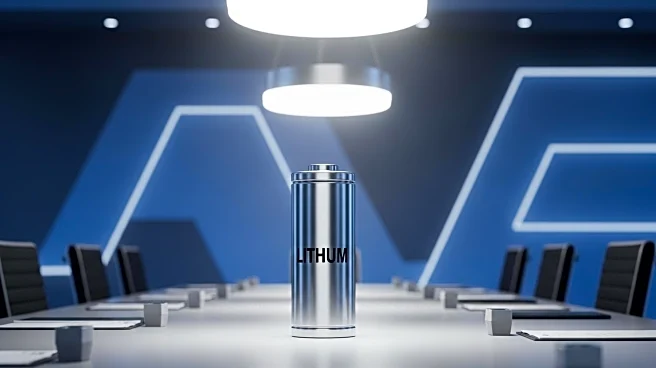What's Happening?
The Trump administration is reportedly seeking an equity stake of up to 10% in Lithium Americas, a company involved in the largest planned lithium mine in the U.S. This move is part of ongoing negotiations regarding a $2.26 billion loan from the Energy Department. The administration's interest in Lithium Americas underscores its focus on securing a stable lithium supply chain, which is crucial for electric vehicle production and other advanced technologies. The potential stake in Lithium Americas represents a significant push towards state capitalism, as the administration aims to bolster domestic production of critical minerals.
Why It's Important?
Lithium is a key component in the production of batteries for electric vehicles and other technologies, making it a strategic resource for the U.S. economy. By securing a stake in Lithium Americas, the Trump administration could enhance the country's energy independence and reduce reliance on foreign lithium sources. This move could also stimulate domestic job creation and technological innovation in the energy sector. However, it may raise concerns about government intervention in private industry and the implications for free market dynamics.
What's Next?
If the Trump administration successfully acquires a stake in Lithium Americas, it could lead to increased investment in domestic lithium production and potentially influence the company's strategic decisions. The administration may also pursue similar stakes in other companies involved in critical mineral production. Stakeholders, including environmental groups and industry competitors, may react to this development, potentially influencing public policy and market dynamics.
Beyond the Headlines
The pursuit of a stake in Lithium Americas highlights broader geopolitical considerations, as securing domestic lithium resources could reduce U.S. vulnerability to international supply chain disruptions. This move may also reflect a strategic shift towards greater government involvement in critical industries, raising questions about the balance between state intervention and market freedom.









